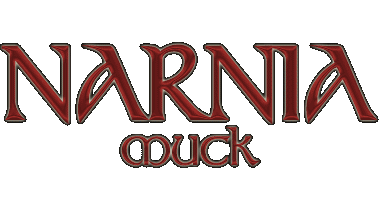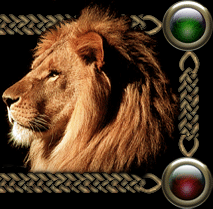On Movie Adaptations: Voyage of the Dawn Treader (and a little Prince Caspian)
Well, Voyage of the Dawn Treader has come out and reviews are mixed. For me, I'm as excited about the new players it could draw in as about the movie itself.
Adaptations for film always elicit interesting reactions. Real diehard lovers of literature almost always hate the movie. Even a small deviation is a travesty. Lovers of what my professors call "beach trash" (escapist books or other books you read without intention to think deeply) usually love even the most blasphemously deviant movies as much as or better than the books. Movie-junkies who have never read the books fall under this category, too. Then, of course, there are the forgiving-but-majorly-disappointed-literature-lovers. They'll say things like "well... this scene was pretty accurate..." or "I guess they had to make some changes because it's a movie...".
Of these three categories, I am probably closest to the last, though I like to place myself in a fourth category called "the reader-writer". To me, there is little point in writing a movie that does not deviate (from)/expand/explore the book at all. The minimalist explanation for this is simply: everyone reads a book a little differently, and the visuals are a. not going to be exactly what you pictured, and b. the right of the producer/ set designer/ director to imagine. But there's more to it than that. As someone who analyzes literature a lot, I've found that most of delving into literature is extrapolating. For instance: Hamlet contains several ambiguous lines which can be taken a number of ways. Critics has interpreted the play in probably hundreds of fashions. If it were produced with an attempt to keep those ambiguities as ambiguous as they are in writing, the play would have to be a monotone reader's theatre. It is just impossible not to interpret. For the play to be well-produced, the director and actors must make some decisions about the intention of the work which some audience members will not have read into the original piece.
In movies, this is even more important and interesting, because they are not meant to be exactly the same as a book. Books are written in a particular style to elicit particular feelings/thoughts/ideas in a particular way. Movies are written in their own particular style to do the same. It is therefore necessary to a movie to make some changes in order for the movie to be effective. Directors, producers, actors, etc, must make some artistic choices to try and remain loyal to the essence of the book and still create a pleasing piece which is a truly artistic endeavor. Movies (even documentaries) are not objective representations. They are subjective, artistic renderings.
But the key word is artistic. What I don't like in movies is when the deviation changes the essential nature of the characters or the essential nature of the plot. Added scenes-- even added plot elements-- can be good or even great, as long as they hold to the spirit of the original story.
Prince Caspian's story deviations weren't great, but they were generally acceptable. What was wrong in Prince Caspian was the incredible deviation of character for both Peter and Aslan. Aslan is incredibly present in the book, and to make him not present changes both who he is as a character and it changes the message of the story. Peter is even more deviant from his real nature. The book presents him as a natural king. Certainly, he has flaws, as any rounded character does, but he would not angst, especially in Narnia. Part of the effect of Narnia is to make the children more like their grown-up Narnian selves, regaining some of their kingly (or queenly qualities). Again, this deviation changes not only the nature of Peter, but the nature of Narnia itself.
But there are other deviant choices the writers made which were valid, or at least allowable. While the 20 year old Caspian and the Susan/Caspian deviations were probably made in order to attract more teenage girls into the audience, there were other justifications for them as well. Caspian's age (and hair color), though it does affect the message of the story somewhat, is probably not essentially important to the message or plot. And Susan/Caspian actually helps to give the audience some foothold as to why Susan would eventually forget Narnia in Last Battle. While I personally would have preferred the movie without it, I can definitely understand the choice made.
Voyage of the Dawn Treader had many more justifiable qualities. The addition of the White Witch into the movie made sense with Edmund. She reminded the audience that, though Edmund was a good king and generally good-natured, he still dealt with the original temptation which got him and all of Narnia in trouble in the first place. While he was occasionally overly angsty, he generally made a lot of sense.
What also helped Dawn Treader was the word-for-word accuracy of the beginning and end, and the general accuracy of the characters. Each of these things made me, as a movie-goer, more willing to forgive transgressions, and it gave me faith in the writers that added pieces like the extrapolation on Edmund's temptation or the added diary entries from Eustace were genuine attempts to understand the characters and message.
This is why the middle of the movie bothered me so much, however. The quest for the swords was a weird, almost video-game-like plot change. It did little to help focus the movie, as the characters were already on a quest and the swords were not really an additional or stronger thing to look for because they were with the original lords Caspian was already seeking. They were just like a convenient added bonus to his quest. While the theme of Temptation Island did help tie the temptations of the different isles together, it hurt the story more than it helped. Besides the too-obvious connections and the sometimes painfully overstated helpful dialogue, making the nightmare island into an island of temptation (especially one which can be defeated with magical items) is extremely detrimental to the story. It gives the message that temptation is not a natural effect of being human, but a magical effect which can be defeated with magical items. The theology of this idea is the kind of theology that got the Catholic Church reformed and the Protestant Church started.
This entry ended up being a lot longer than I intended, so I'll wrap up now. All this was in essence to say this: what you felt about the movie was probably valid. If it entertained you, good! If it offended your sensitive literary, Lewis-loving senses, fair! If you loved some things and hated others, me too! If the most exciting thing for you was the popcorn, I hope it was delicious!
Share your thoughts about the movies with other players in our spoilers room, affectionately called the Room of Requirement. It is located the basement of the OOC Lounge, north of the main room.
- Antheia's blog
- Login to post comments


